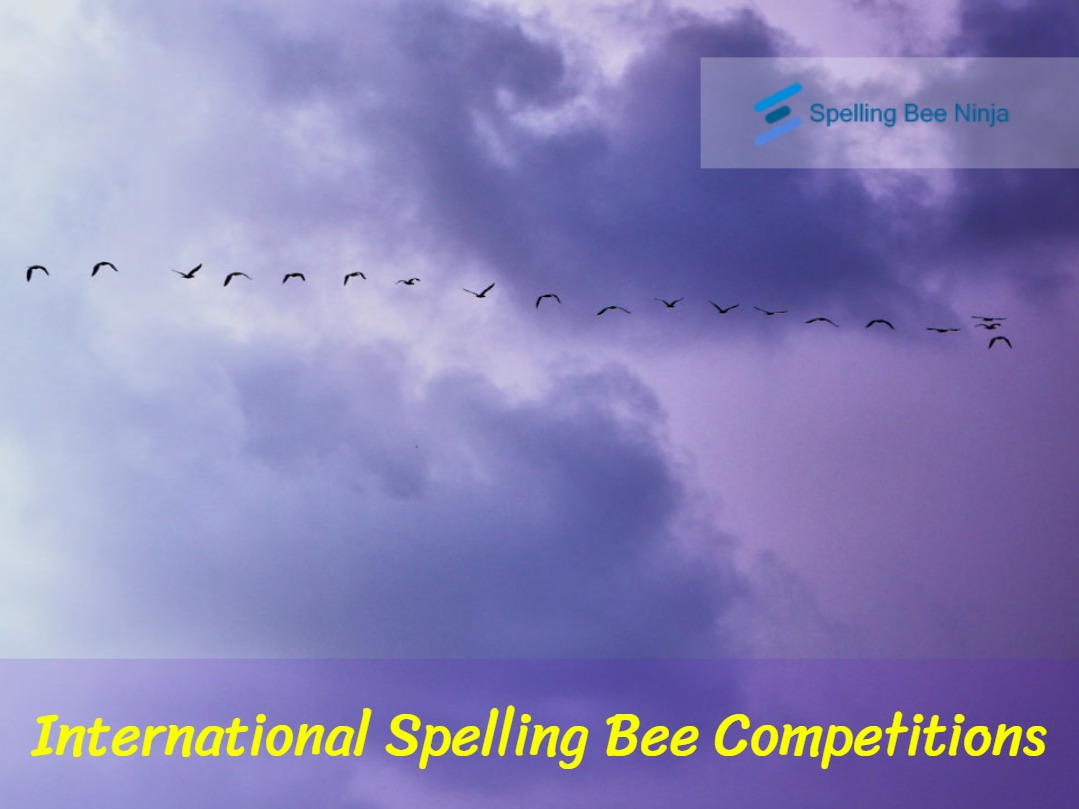Spelling bees have evolved from local classroom activities into highly anticipated global competitions that test knowledge, memory, and composure. While spelling may seem straightforward, international spelling bees bring together talented students from diverse countries to celebrate linguistic mastery and cross-cultural learning. This guide provides a deep dive into the world of international spelling bee competitions—their origins, structures, preparation strategies, and opportunities they create for students worldwide.
The Origins of Spelling Bees
The spelling bee traces its roots back to the United States. The term “bee,” meaning a community gathering for a shared task, was adopted in the mid-19th century. The first recorded national spelling contest took place in the U.S. in 1925, leading to the creation of the Scripps National Spelling Bee, which remains the most prestigious spelling competition globally.
Over the years, spelling bees expanded beyond U.S. borders. Today, numerous international versions exist, giving students from Asia, Africa, Europe, and the Middle East the chance to showcase their spelling skills on a grand stage.
Major International Spelling Bee Competitions
Several spelling bees are recognized internationally, each with unique features:
Scripps National Spelling Bee (U.S.)
The most famous spelling bee worldwide.
Open to students from various countries, provided they qualify through local partners.
Televised globally and known for its challenging word lists.
World Spelling Championship (UK-based)
Brings together spellers from across continents.
Focuses on English words from multiple origins, including Latin, Greek, and French.
Asia Spelling Cup
Popular across Southeast Asia.
Offers online preliminary rounds and live finals in major Asian cities.
African Spelling Bee
A collaboration of multiple African countries.
Aims to promote literacy and cross-cultural exchange on the continent.
International Online Spelling Bees
Grew in popularity after 2020.
Provide opportunities for students who cannot travel but still want to compete globally.
Competition Structure and Rules
While each competition has its own rules, most follow a similar format:
Preliminary Rounds: Contestants spell words orally in front of judges or submit answers digitally in online formats.
Progressive Difficulty: Words become increasingly complex, often featuring rare origins, irregular spellings, or multiple accepted pronunciations.
Elimination Rounds: A single misspelling typically results in elimination.
Finals: The last contestants compete head-to-head until a champion emerges.
Some competitions also include written vocabulary tests, definitions, and etymology challenges to ensure well-rounded knowledge.
Training for an International Spelling Bee
Success at the international level requires discipline, strategy, and creativity. Here are key preparation methods:
Word Study Lists
Competitions often publish study guides with frequently used words.
Mastery of these lists provides a strong foundation.
Etymology and Language Roots
Many difficult words derive from Greek, Latin, German, or French.
Learning linguistic roots helps spellers deduce unfamiliar terms.
Phonetics Practice
Spellers must listen carefully to pronunciations.
Phonetic transcription exercises improve recognition of subtle sounds.
Mock Competitions
Simulating real conditions helps reduce anxiety.
Practicing under time limits sharpens focus and composure.
Memory Techniques
Mnemonics, visualization, and repetition strengthen retention.
Some spellers use “word journeys,” creating stories around tricky spellings.
Mentorship and Coaching
Many successful spellers train under experienced coaches.
Peer practice groups provide motivation and healthy competition.
Challenges Faced by International Spellers
Competing at this level is not without obstacles:
Cultural and Linguistic Diversity: Non-native English speakers often face additional challenges, requiring extra practice.
Travel and Accessibility: Not all students can afford to travel internationally, though online competitions have helped bridge this gap.
Mental Pressure: Young contestants must manage nerves under bright lights and live audiences.
Balancing Schoolwork: Preparing for competitions while excelling academically requires strong time management.
Despite these challenges, many participants find the experience enriching and transformative.
Benefits of Participating
International spelling bees offer far more than trophies. Students gain:
Academic Growth: Stronger vocabulary, improved reading comprehension, and enhanced writing skills.
Confidence and Public Speaking: Performing on stage builds resilience and self-assurance.
Cultural Exchange: Meeting peers from around the world broadens horizons.
Scholarships and Recognition: Winners often receive academic opportunities and media coverage.
Lifelong Skills: Discipline, memory strategies, and quick decision-making benefit careers beyond school.
Inspiring Success Stories
Spelling bee champions often become symbols of dedication and academic excellence. Notable examples include:
Zaila Avant-garde (USA, 2021): The first African-American champion of the Scripps National Spelling Bee, also a talented basketball player.
Karthik Nemmani (India/USA, 2018): Won despite being a newcomer, showcasing the inclusivity of the competition.
African Spelling Bee Champions: Frequently emphasize how competitions foster literacy development across the continent.
These stories inspire young learners worldwide to dream big and embrace the joy of words.
How to Get Involved
For parents, teachers, and students eager to participate, here’s how to start:
Research Local Chapters: Many countries host national or regional spelling bees that feed into international competitions.
Register Early: Competitions often have deadlines months in advance.
Join Clubs and Online Platforms: Several organizations offer spelling practice communities online.
Seek Sponsorships: Schools, businesses, and NGOs sometimes support promising contestants.
Spelling Bee World Competitions Table
| Country / Region | Competition Name | Official Website |
| USA | Scripps National Spelling Bee | spellingbee.com |
| USA | National Spanish Spelling Bee | nationalspanishspellingbee.com |
| USA (South Asian community) | South Asian Spelling Bee | southasianspellingbee.com |
| Canada | Spelling Bee of Canada | spellingbeeofcanada.ca |
| Africa (continent-wide) | African Spelling Bee | africanspellingbee.com |
| Ghana | The Spelling Bee (Young Educators Foundation) | thespellingbeegh.org |
| Nigeria | Nigeria Spelling Bee | nigeriaspellingbee.com |
| Asia (Southeast Asia) | Asia Spelling Cup | asiaspell.com |
| India | Spell Bee International (ISB) | spellingbeeinternational.com |
| India | HDFC ERGO Spell Bee – India Spells | hdfcergo.com |
| Asia (regional) | MaRRS International Spelling Bee (MISB) | (Wikipedia) |
| Eurasia | Eurasian Spelling Bee (ELSC) | englisholympiads.net |
| Japan | Japan Spelling Bee (The Japan Times Bee) | bee.japantimes.co.jp |
| Japan (Tokyo) | Tokyo Spelling Bee (Tokyo Academics) | tokyospellingbee.org |
| Australia | Prime Minister’s Spelling Bee | kidsnews.com.au/pmspellingbee |
| New Zealand | New Zealand National Spelling Bee | spellingbee.co.nz |
| UAE | Spelling Bee Championship UAE | spellingbeechampionshipuae.com |
| Sri Lanka | Lyceum Assessments – Spelling Bee | lyceumassessments.lk |
| Bangladesh | The Daily Star Spelling Bee (Champs21) | thedailystar.net/champs21 |
| Mexico | MEXTESOL National Spelling Bee | mextesol.net |
| Mexico (Nayarit) | SEPeN State Spelling Bee | sepen.gob.mx (PDF) |
| Global (online) | WOSL — World Online Spelling League (Spelling Bee Ninja) | spellingbee.ninja WOSL page (Spelling Bee Ninja) |
| Global (online) | SpellPundit National Online Spelling Bee | spellpundit.com |
The Future of International Spelling Bees
As English continues to serve as a global language of communication, spelling bees are likely to expand further. Technology will play a growing role, with hybrid competitions making participation accessible regardless of location. Additionally, the emphasis may shift from memorization to broader language skills, including vocabulary, definitions, and usage.
International spelling bees are more than contests—they are celebrations of learning, perseverance, and cultural exchange. Whether you are a student preparing to compete, a parent encouraging your child, or simply a language enthusiast, these competitions remind us of the beauty and complexity of words.


